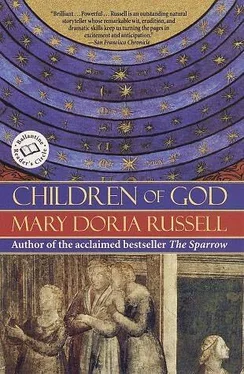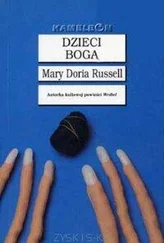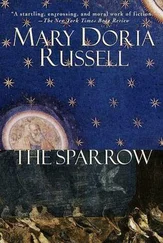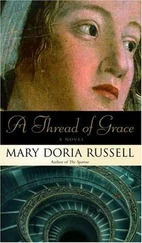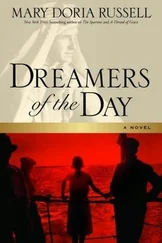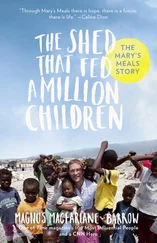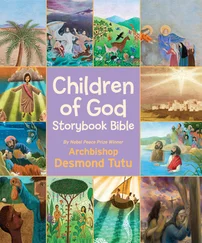From all over the southern provinces of Inbrokar, Runa refugees joined the VaKashani in Trucha Sai. Each man carried a baby, each baby born to a Runa couple whose diets had been supplemented with plentiful food grown in gardens like that of the foreigners—couples who had come into season without Jana’ata supervision, who had mated without Jana’ata permission, who had circumvented Jana’ata stewardship with unthinking cheer, unintentional defiance. The Trucha Sai settlement slowly filled with men whose backs were raked with long, tripled, half-healed scars, gaily pink and waxy, that sliced through dense, buff-colored coats.
"Sipaj, Kanchay. It must have hurt you to carry this one here," Sofia had said one day, looking at those scars and remembering the journey to the forest. "Someone thanks you."
The Runao’s ears dropped abruptly. "Sipaj, Fia! Someone’s child lives because of you."
That’s something, she’d thought bleakly, lying back again and listening to the forest symphony of calls and shrieks and rustling leaves dripping with misty rain. The Talmud taught that to save a single life is to save the whole world, in time. Maybe, she thought. Who knows?
NOW, A MONTH AFTER THE MASSACRE THAT HAD KILLED HALF THE RUNA village of Kashan, Sofia Mendes believed herself the last of her kind on Rakhat, the sole survivor of the Jesuit mission. Mistaking bloodless lethargy for calm, she believed as well that she felt no grief. With practice, she told herself, she had come to accept that tears were no remedy for death.
Her life had been blessedly unburdened by happiness. When some period of fleeting contentment ended, Sofia Mendes did not register it as outrageous, but merely noted a return to life’s normal condition. So, as the first weeks after the massacre passed, she simply counted herself lucky to be among others who did not weep and wail for the dead.
"Rain falls on everyone; lightning strikes some," her friend Kanchay observed. "What cannot be changed is best forgotten," he advised, not with callousness, but with a certain quality of practical resignation that Sofia shared with the Runa villagers of Rakhat. "God made the world and He saw that it was good," Sofia’s father had always told her when she complained of some injustice during her brief childhood. "Not fair. Not happy. Not perfect, Sofia. Good."
Good for whom? she had often wondered, first with juvenile petulance and later with the weariness of a woman of fourteen, working the streets of Istanbul in the midst of an incomprehensible civil war.
She had almost never cried. Child to woman, Sofia Mendes had never gotten anything by crying except a headache. From the time she was able to talk, her parents dismissed tears as the cowardly tactic of the weak-minded and schooled her in the Sephardic tradition of clear argument; she got her way not by sniveling, but by defending her position as logically and persuasively as she could, within the limits of her neurological development. When, barely pubescent and already hardened by the realities of urban combat, she had stood over her mother’s mortar-mangled corpse, she was too shocked to cry. Neither did she cry for the father who simply failed to come home one day or ever again: there was no particular time to pass from anxiety to mourning. Nor did she sympathize with the other destitute young whores when they cried. She held herself together and did not spoil her looks with a puffy, blotched face, so she ate more regularly than the others and was strong enough to jam a knife between ribs if a client tried to cheat or kill her. She sold her body, and when the opportunity eventually presented itself, she sold her mind—for a much better price. She survived, and got out of Istanbul alive with her dignity intact, because she would not yield to emotion.
She might not have mourned at all, had it not been for a nightmare in her seventh month of pregnancy, when she dreamed that her baby had been born with blood pouring from its eyes. Waking horrified to the solid heaviness within her, she wept first with relief, realizing that she was still pregnant and a baby’s eyes could not bleed that way. But the dike had crumbled, and she was at long last engulfed by an oceanic sadnesss. Drowning in a sea of loss, she wrapped her arms around her taut, round belly, and wept and wept, with no words, no logic, no intelligence to shield her, and understood that it was this—this terror, this pain—that she had fled from all her life, and with good reason.
As unfamiliar as she was with tears, it was a terrible thing to cry now, and feel only one side of her face wet—and with that realization, grief became hysteria. Alarmed by her sobbing, Kanchay asked anxiously, "Sipaj, Fia, have you dreamt of the ones who are gone?" But she could not answer or even lift her chin in assent, so Kanchay and his cousin Tinbar swayed and held her, and looked to the sky for the storm that would surely come now that someone had made a fierno. Others came to her as well, asking after her dead and donating ribbons for her arms, as she cried.
In the end, her own exhaustion saved her when no one else could. Never again, she vowed as she fell asleep, emptied of emotion at last. I will never let this happen to me again. Love is a debt, she thought. When the bill comes, you pay in grief.
The baby kicked, as if in protest.
* * *
SHE WOKE IN KANCHAY’S EMBRACE WITH TINBAR’S TAIL CURLED OVER her legs. Sweating, her face asymmetrically swollen, she disentangled herself from the others and rose awkwardly, lumbering big-bellied toward the creek with a dark chaninchay, newly made from the broad, shallow shell of a forest pigar. She stood for a few moments, then lowered herself carefully, reaching out into the stream to fill the bowl. Kneeling, she dipped her hands over and over into the cool pure water, sluicing it over her face. Then, filling the bowl once more, she waited for the black water to still before using it as a mirror.
I am not Runa! she thought, amazed.
This strange loss of self-image had happened to her before; several months into her first overseas AI contract in Kyoto, she was startled each morning to look into a bathroom mirror and discover that she was not Japanese like everyone around her. Now, here, her own human face seemed naked; her dark, snarled hair bizarre; her ears small and inadequate; her single-irised eye too simple and frighteningly direct. Only after she had come to grips with all this did the rest sink in: the slanting, three-tracked scar that sliced from forehead to jaw. The blind, cratered… place.
"Someone’s head hurts," she told Kanchay, who had followed her to the creek and sat down beside her.
"Like Meelo," said Kanchay, who had witnessed Emilio Sandoz’s migraines and considered headache a normal foreign response to grief. He settled back onto a thick-muscled, tapering tail and made a tripod with his upraised legs. "Sipaj, Fia, come and sit," he suggested, and she held out her hand so he could steady her as she moved to him.
He began to tidy her hair, combing through it section by section with his fingers, untangling knots with a Runao’s sensitive touch. She gave herself up to this, and listened to the forest grow quiet in the midday heat. Occupying her own hands as little Askama always had while sitting in Emilio’s lap, Sofia picked up the ends of three ribbons tied around her arm and began to plait them. Askama had often braided ribbons into Anne Edwards’s hair and Sofia’s, but none of the foreigners had ever been offered body ribbons to wear. "Probably because we wear clothes," Anne had thought, but it was just a guess.
"Sipaj, Kanchay, someone wonders about the ribbons," Sofia said, looking up at him, turning her head to see from her left side. She was a little shortsighted in that eye. A pity, she thought, that the Jana’ata who’d half-blinded her hadn’t been right-handed—he’d have taken the bad eye instead.
Читать дальше
